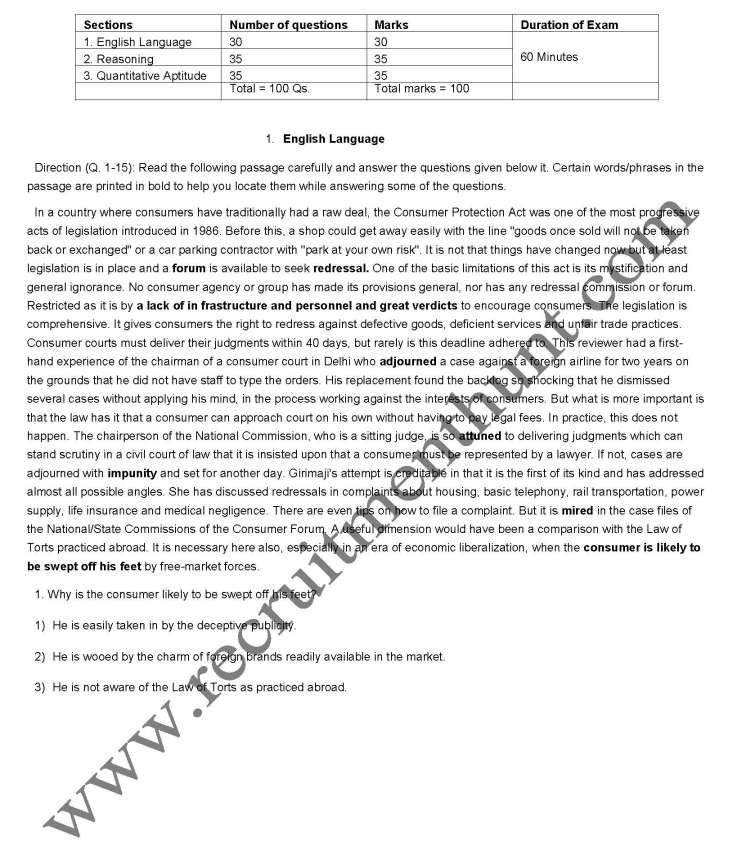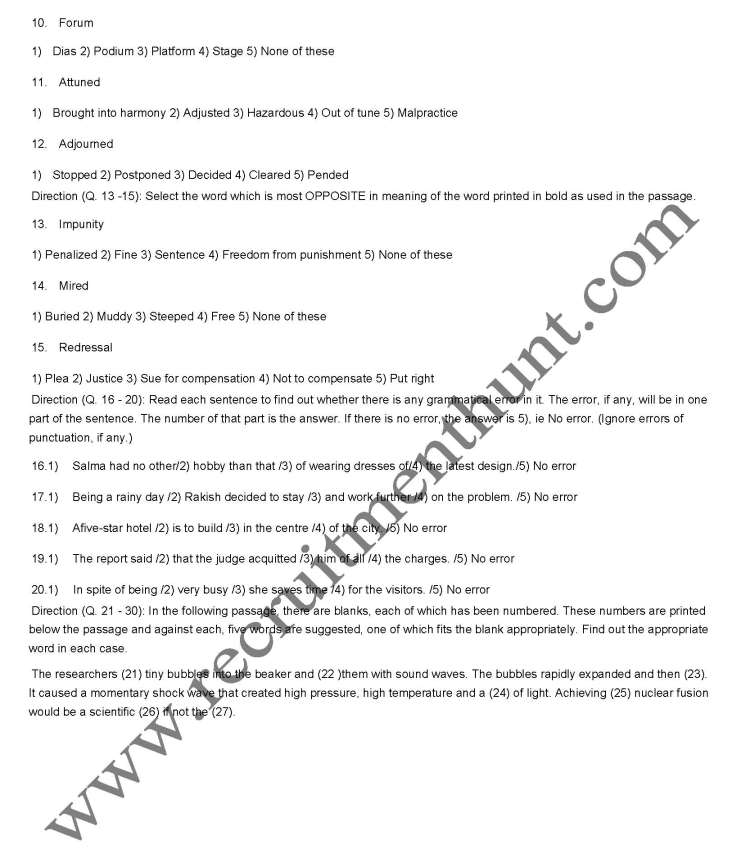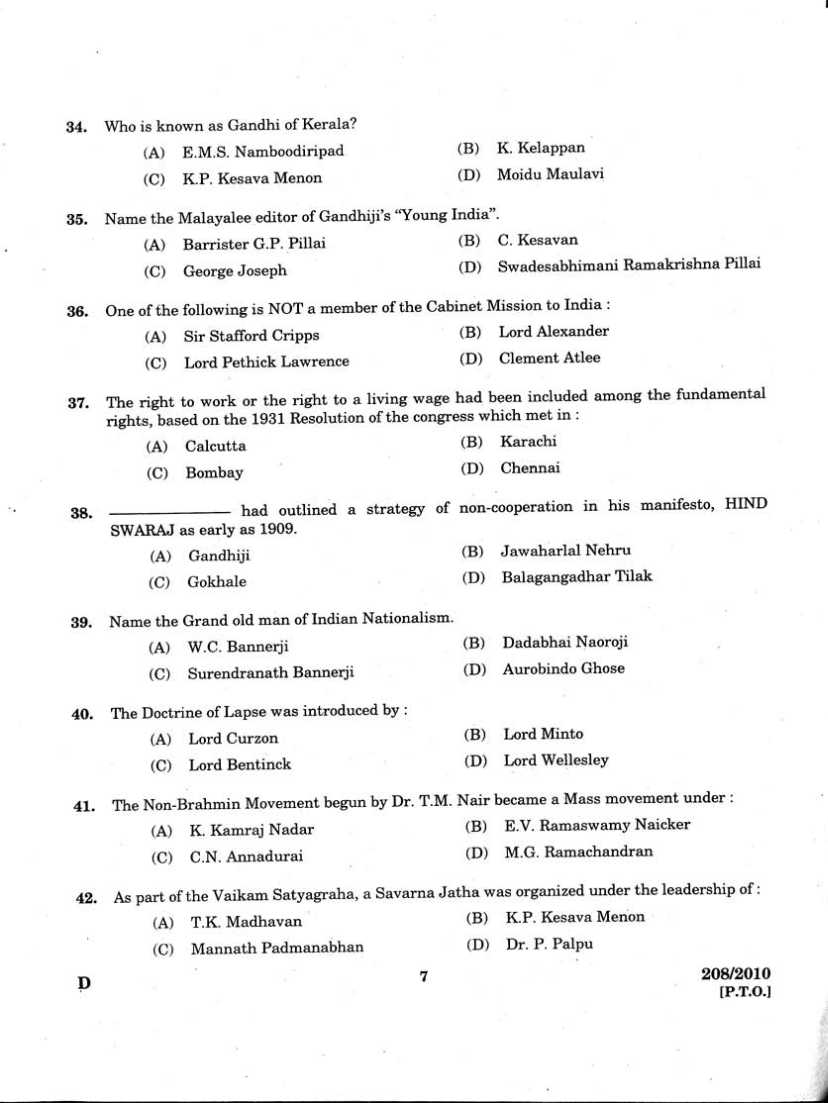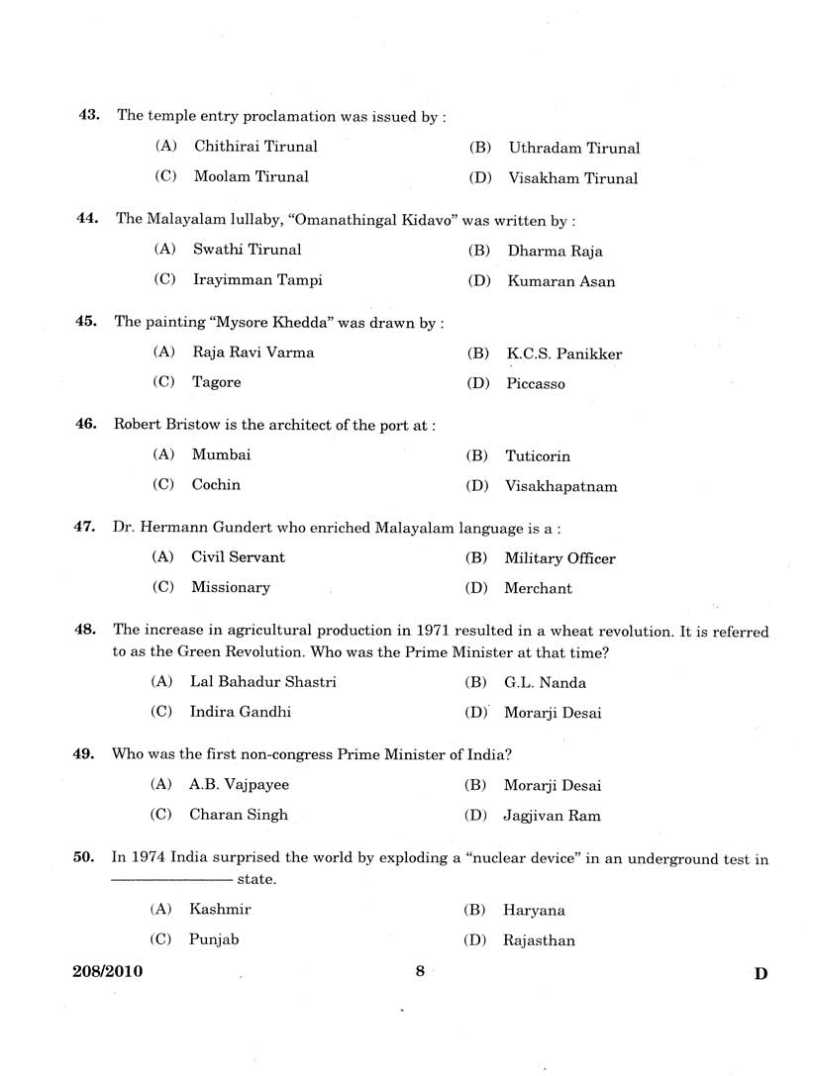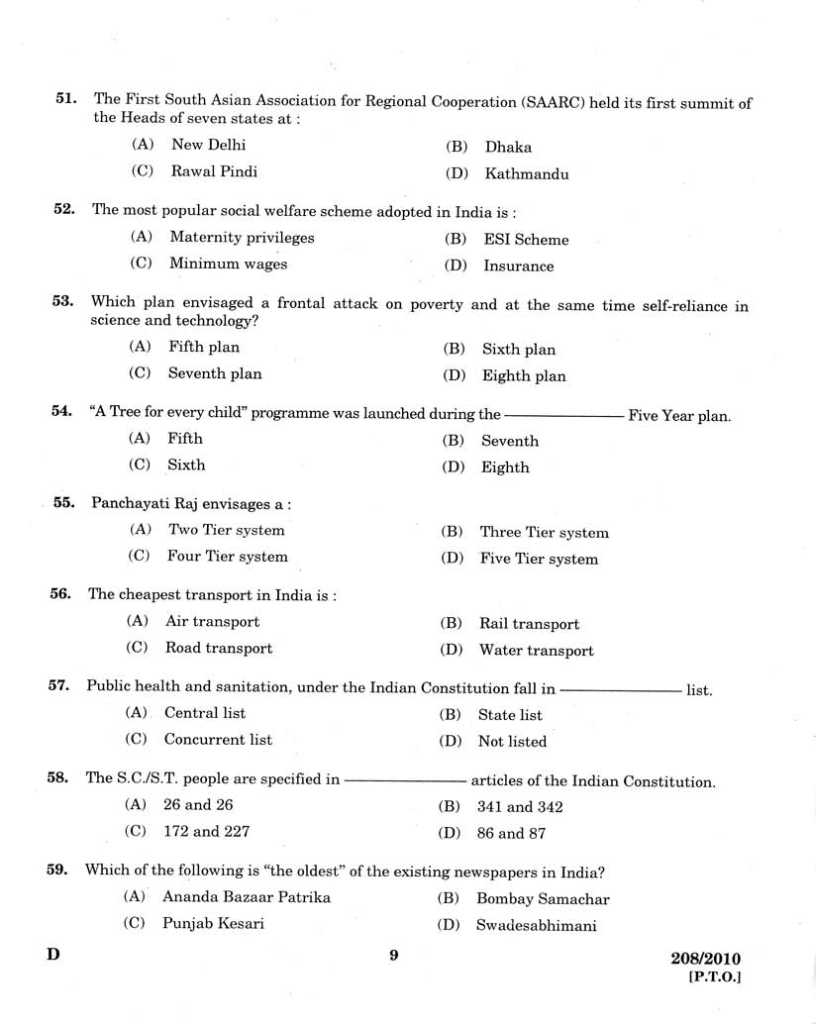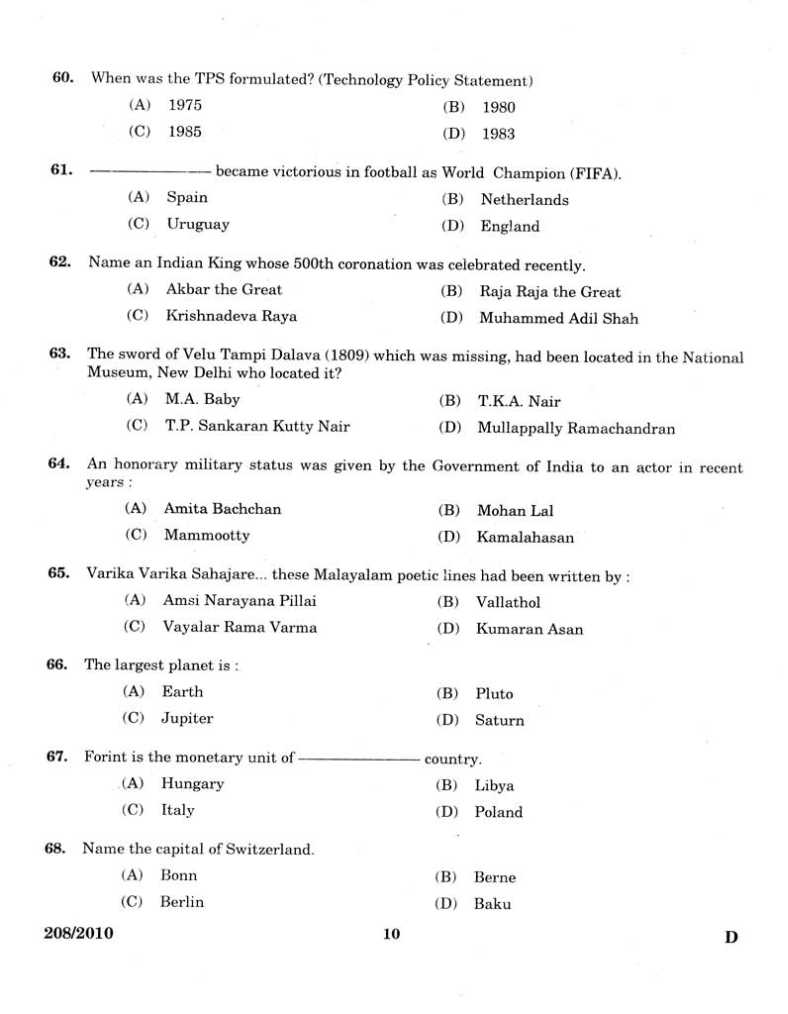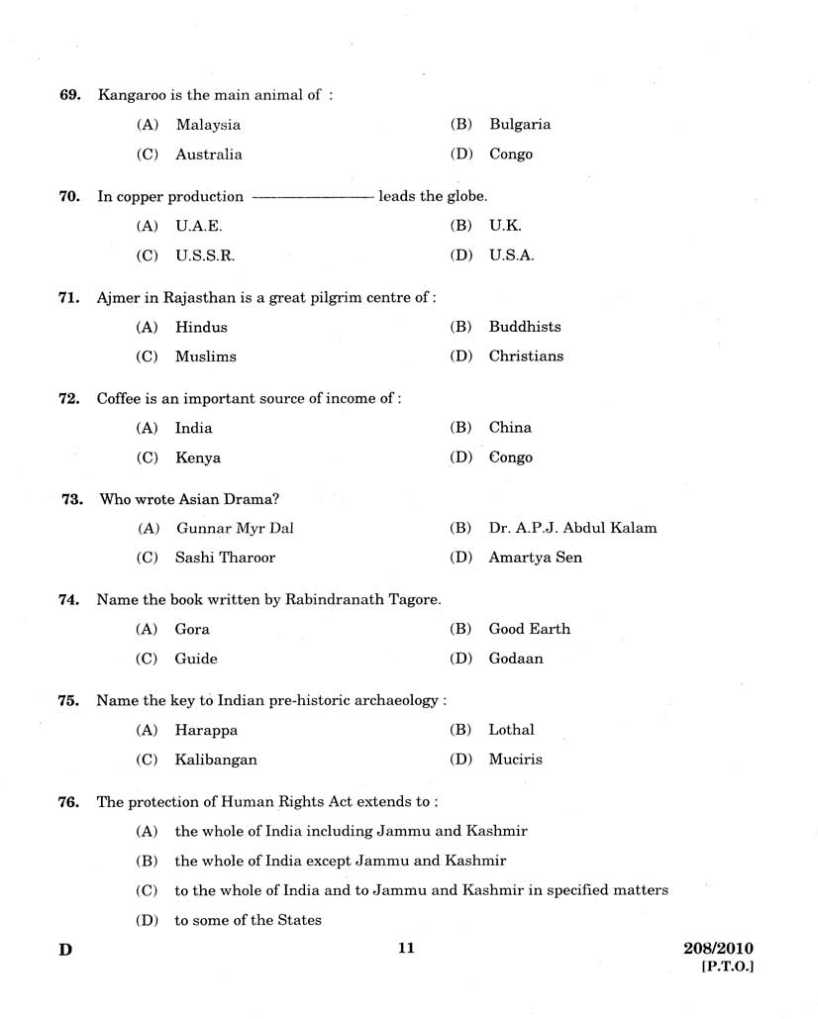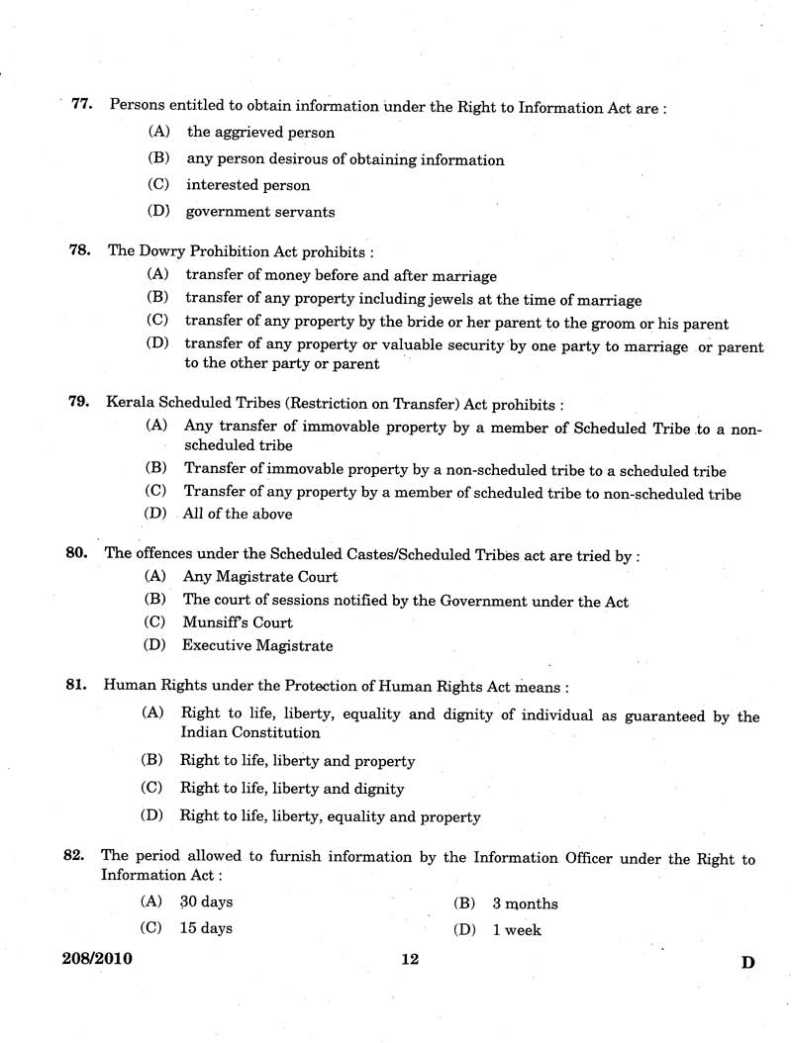The previous year English question paper for Statistical Assistant Post Exam conducted by DSSSB (Delhi Subordinate Services Selection Board) is as follows:
1. English Language
Direction (Q. 1-15): Read the following passage carefully and answer the questions given below it. Certain words/phrases in the passage are printed in bold to help you locate them while answering some of the questions.
In a country where consumers have traditionally had a raw deal, the Consumer Protection Act was one of the most progressive acts of legislation introduced in 1986. Before this, a shop could get away easily with the line "goods once sold will not be taken back or exchanged" or a car parking contractor with "park at your own risk". It is not that things have changed now but at least legislation is in place and a forum is available to seek redressal. One of the basic limitations of this act is its mystification and general ignorance. No consumer agency or group has made its provisions general, nor has any redressal commission or forum.
Restricted as it is by a lack of in frastructure and personnel and great verdicts to encourage consumers The legislation is comprehensive. It gives consumers the right to redress against defective goods, deficient services and unfair trade practices. Consumer courts must deliver their judgments within 40 days, but rarely is this deadline adhered to. This reviewer had a firsthand experience of the chairman of a consumer court in Delhi who adjourned a case against a foreign airline for two years on the grounds that he did not have staff to type the orders. His replacement found the backlog so shocking that he dismissed several cases without applying his mind, in the process working against the interests of consumers. But what is more important is that the law has it that a consumer can approach court on his own without having to pay legal fees. In practice, this does not happen. The chairperson of the National Commission, who is a sitting judge, is so attuned to delivering judgments which can stand scrutiny in a civil court of law that it is insisted upon that a consumer must be represented by a lawyer. If not, cases are adjourned with impunity and set for another day. Girimaji's attempt is creditable in that it is the first of its kind and has addressed almost all possible angles. She has discussed redressals in complaints about housing, basic telephony, rail transportation, power supply, life insurance and medical negligence. There are even tips on how to file a complaint. But it is mired in the case files of the National/State Commissions of the Consumer Forum. A useful dimension would have been a comparison with the Law of Torts practiced abroad. It is necessary here also, especially in an era of economic liberalization, when the consumer is likely to be swept off his feet by free-market forces.
1. Why is the consumer likely to be swept off his feet?
1) He is easily taken in by the deceptive publicity.
2) He is wooed by the charm of foreign brands readily available in the market.
3) He is not aware of the Law of Torts as practiced abroad.
4) He is not aware of the benefits of the consumer rights.
5) The Consumer Protection Act has been implemented and he can seek redressal.
2. What does 'lack of... verdicts' imply?
1) A lack of the basis of the system, trained staff and decisions based on fact
2) A paucity of funds, jury and judgment
3) A lack of resources, employees and final decision based on facts
4) Not having the required manpower, economy and decisive ruling
5) None of these
3. Which of the following statements is/are true?
A. Girimaji's attempt is comprehensive but could have done with an angle or two more.
B. Though the Act allows the consumer to approach the court on his own, yet a lawyer to represent him is insisted upon.
C Despite the Act, much remains the same.
1) Only A and C 2) Only A and B 3) AHA, Band C 4) Only B and C 5) None of these
4. What does the author mean by 'mystification of the Act'?
1) The mysterious Act is yet to be resolved.
2) The consumer is wary of the Act.
3) The Act is not easily accessible.
4) The consumer remains unaware of his rights and privileges.
5) The plight of the consumer is yet to end.
English Question Paper Statistical Assistant Delhi Subordinate Services Selection Board 